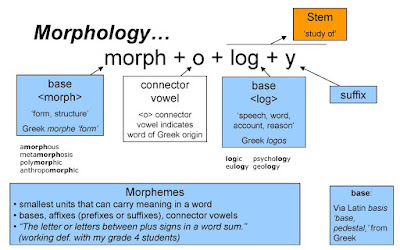2nd group Sociolinguistics: Language, Dialects and Varieties
Good day all..
Today, I'll share about conclusion 2nd group presentations about Language, dialect, and varieties.
Language is tool you use, readmore :
Language is many things; it can be a system of communication, a medium for thought, vehicle for literary expression, a matter for political controversy, a catalyst for nation building (O’Grady & Dobrovolsky, 1989: 1 in Imansyah, 2008: 1).
The existence of language can’t be separated from human life. It can be seen from the fact that all activities related to interaction among people necessitate a language. Language is an important means of communication. Language reflects thinking; obviously we can’t say a sentence until we have first thought of it.
7 criteria of language
1. Standardization: Codification of language: grammars, spelling books, dictionaries, literature. It is possible to teach. To make standardization, it require choosing one elite vernacular and it can be prestigious
2. Vitality : the existence of a living community of speakers.
3. Historicity : a particular group of people finds their identity by using a particular language
4. Autonomy : Other speakers of a language must be felt different from other languages
5. Reduction : particular variety may be regarded as a sub-variety rather than as an independent entity.
6. Mixture : Feelings about the purity or lack of purity of variety
7. De facto norms: speakers recognize as ‘good’ speakers and ‘poor’ speakers and that the good speakers represent the norms of proper usage.
Dialect vs. Accent.
Dialect is the variety of vocabulary, syntax, pronunciation. Accent is variety only in pronunciation. Accent also well-known as RP (receive pronunciation).
* Social dialect is difference speech associate with various social groups. Social dialects create among social groups and are related to a variety of factors such as social class, religion, and ethnicity. In India, for example, caste is one of the clearest of all social differentiators.
* 'style' relates to the typical ways in which one or more people do a particular thing. Style in language behavior thus becomes alternative ways of expressing the same content.
*Register is a set of linguistic items were associated with discrete occupational and social groups. Surgeons, airline pilots, bank managers, sales clerks, jazz fans, and pimps employ different registers, they develop similar vocabulary and intonation we also talk about dialect, register, and style independently, we may talk casually in local variety of language, write formal technical study and also making judgment “better or worse” to speaker who has the same background.
*Belief is systems of ideas or ideology, some people believed that certain language is lack of grammar, we can speak English without accent. Also English is believed false language; pronunciation is based on spelling, and slipping language. The representations of belief can operate the interests of an identifiable social class or cultural group.
Question:
1. Sociolect, defined by Peter Trudgill, a leading sociolinguist and philosopher, is “a variety which is thought of as being related to its speakers’ social background rather than geographical background”. What does it mean?
2. Please, give differences and example between regional and social dialect!
3. What is different between language, dialect, accent?
4. Why language can different in the world?
5. Haugen (1996a) has pointed out that language and dialect are ambiguous terms. What does it mean?
Answer:
1. This idea of sociolect began with the commencement of Dialectology, the study of different dialects in relation to social society, which has been established in countries such as England for many years, but only recently has the field garnered more attention. However, as opposed to dialect, the basic concept of a sociolect is that a person speaks in accordance with their social group whether it is with regard to one’s ethnicity, age, gender, etc. As William Labov once said, “the sociolinguistic view…is that we are programmed to learn to speak in ways that fit the general pattern of our communities”. Therefore, what we are surrounded with in unison with our environment determines how we speak; hence, our actions and associations.
2. Differences: in pronunciation, in the selecting and constructing of words, and in syntax of a language such distinctive varieties of local variety are called regional dialects.
3. Language is spoken and written we use in our daily life. Dialect is a regional variety of language distinguished by features of vocabulary, grammar, and pronunciation from other regional varieties and constituting together with them a single language. And accent is a manner of pronunciation peculiar to a particular individual, location, or nation. Example Batak has accent toba, mandailing, karo, etc.
4. It may be help you find the answer
click here
5. Ordinary people use these terms quite freely in speech; for them a dialect is almost certainly no more than a local non-prestigious (therefore powerless) variety of a real language. In contrast, scholars often experience considerable difficulty in deciding whether one term should be used rather than the other in certain situations. As Haugen says, the terms ‘represent a simple dichotomy in a situation that is almost infinitely complex.’ He points out that the confusion goes back to the Ancient Greeks. The Greek language that we associate with Ancient Greece was actually a group of distinct local varieties (Ionic, Doric, and Attic) descended by divergence from a common spoken source with each variety having its own literary traditions and uses, e.g., Ionic for history, Doric for choral and lyric works, and Attic for tragedy. Later, Athenian Greek, the koiné – or ‘common’ language – became the norm for the spoken language as the various spoken varieties converged on the dialect of the major cultural and administrative center.
Thank you for visiting. Vediamo più tardi



Komentar
Posting Komentar
Life is short. There is no time to leave important words unsaid [Japanese Proverb]